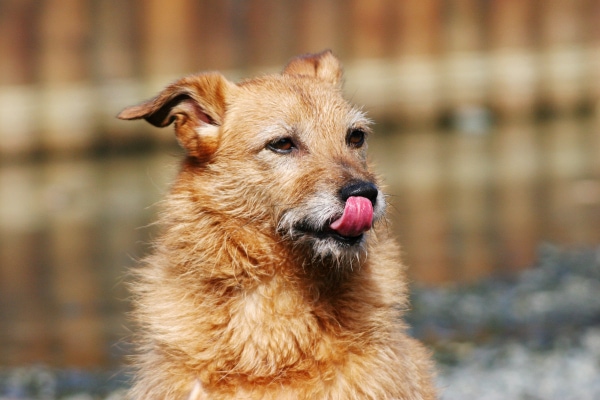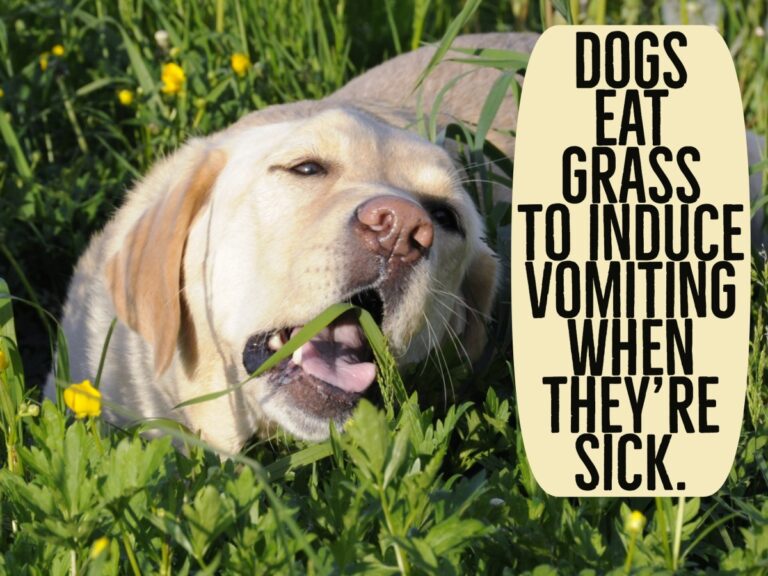It could be a sign of nausea, acid reflux, dental issues, or stress. Pay attention to other symptoms for a proper diagnosis.
If you’re wondering why your dog keeps licking his lips and swallowing at night, it could be a sign of an underlying health issue. Dogs may exhibit this behavior due to nausea, acid reflux, dental problems, or stress. It’s essential to pay attention to any other symptoms your dog may be experiencing to determine the root cause of this behavior.
In some cases, it could be a simple case of hunger or thirst, while in others, it could be indicative of a more serious health concern. Understanding the possible reasons behind this behavior can help you provide the necessary care and support for your beloved pet.
Canine Lip Licking Behavior
There are several reasons why a dog may excessively lick its lips and swallow, including potential triggers such as anxiety, stress, or nausea. Normal lip licking is a natural behavior to indicate anticipation or enjoyment, but excessive lip licking could be a sign of discomfort or an underlying medical issue. It’s important for pet owners to observe the frequency and context of their dog’s lip licking behavior to determine if it is within normal range or if there may be a cause for concern.
Communicative Aspects Of Lip Licking
Dogs often lick their lips and swallow at night as a way of expressing stress-related signals. This behavior can indicate discomfort and may be related to anxiety or fear. It is important for dog owners to observe their pet’s body language and other communicative aspects to understand the reasons behind such behaviors. Lip licking, when occurring frequently at night, may be a sign that the dog is trying to communicate its unease or distress. Paying attention to these signals and addressing the underlying issues can help improve the well-being of the dog and foster a stronger bond between the owner and the pet.
Identifying The Causes Of Lip Licking
Gastrointestinal discomfort and its signs: Excessive lip licking and swallowing in dogs can indicate gastrointestinal discomfort, often accompanied by drooling and vomiting. It’s crucial to monitor their stool and behavior for any signs of digestive issues.
Dental issues leading to excessive licking: Oral pain or dental problems can lead to increased lip licking as dogs attempt to alleviate discomfort. Look for redness, swelling, or bleeding in the gums, and consult a veterinarian for a thorough dental examination.
Allergies and their manifestation in dogs: Allergies, whether food-related or environmental, can trigger persistent lip licking in dogs. Watch for other allergy symptoms such as itching, redness, or skin irritation, and consider allergy testing if necessary.
Neurological disorders and behavioral signs: Neurological issues or psychological factors may contribute to excessive lip licking in dogs, often accompanied by pacing, restlessness, or compulsive behavior. Consulting a veterinarian for a comprehensive evaluation is essential to address any underlying neurological or behavioral concerns.

Credit: toegrips.com
Nighttime Anxiety In Dogs
Does your dog constantly lick his lips and swallow at night? This nighttime behavior could be a sign of nighttime anxiety in dogs. Nighttime anxiety in dogs can be caused by various factors, including separation anxiety and environmental stressors. Dogs may experience anxiety at night when they feel separated from their owners or other pets. Environmental factors such as loud noises, unfamiliar surroundings, or changes in routine can also disrupt a dog’s sleep. To help alleviate nighttime anxiety in dogs, it’s important to create a calming bedtime routine. This may involve providing a comfortable sleeping environment, incorporating soothing activities before bedtime, and ensuring that your dog feels secure and relaxed. By addressing the underlying causes of nighttime anxiety, you can help your dog enjoy a more peaceful night’s sleep.
Dietary Adjustments And Nutrition
My Dog Keeps Licking His Lips And Swallowing at Night
Dietary adjustments and nutrition play a vital role in maintaining your dog’s digestive health. Identifying food allergies can be crucial in addressing lip licking and swallowing issues. Ensuring proper hydration for your dog is equally important, as it can greatly impact their digestive well-being.
Health And Dental Care Strategies
Routine veterinary check-ups: Regular veterinary check-ups are essential for maintaining your dog’s overall health. These visits enable the vet to assess any potential issues and provide preventive care to keep your dog healthy.
Dental hygiene practices for dogs: Implementing a dental care routine for your dog is crucial for preventing dental issues such as plaque buildup, gum disease, and tooth decay. Regular brushing, dental chews, and specialized dental diets can help maintain your dog’s oral health.
Recognizing the need for professional help: It’s important to be vigilant for any signs of discomfort or abnormal behavior, such as excessive lip-licking and swallowing, which may indicate an underlying dental or health issue. Seeking professional veterinary assistance promptly is crucial for addressing these concerns.
Environmental And Behavioral Modifications
Creating a stress-free living space for your dog is essential to address lip licking and swallowing at night. Providing a comfortable, quiet area for your dog to rest and ensuring a consistent daily routine can help reduce stress and anxiety. Additionally, incorporating pheromone diffusers or calming music can create a soothing environment.
The significance of regular exercise and play cannot be overstated in alleviating stress and promoting overall well-being for your dog. Engaging in interactive play and daily exercise can release pent-up energy and decrease anxious behaviors, which may contribute to lip licking and swallowing at night.
Utilizing training methods to reduce anxious behavior can also be beneficial. Positive reinforcement training, desensitization techniques, and providing mental stimulation through puzzle toys can help your dog feel more secure and reduce stress, potentially diminishing the lip licking and swallowing behavior.
Frequently Asked Questions On My Dog Keeps Licking His Lips And Swallowing At Night
Why Does My Dog Lick His Lips And Swallow At Night?
It could be a sign of gastrointestinal discomfort or nausea. Refrain from offering late meals and limit water before bedtime. If the behavior persists, consult a veterinarian to rule out any underlying health issues.
What Can Cause Excessive Lip Licking And Swallowing In Dogs?
Excessive lip licking and swallowing can be due to acid reflux, allergies, dental issues, or stress. It could also indicate potential ingestion of something toxic. It’s essential to monitor your dog’s behavior and consult a vet for a thorough evaluation.
How Can I Help My Dog If He’s Constantly Licking His Lips At Night?
Provide your dog with a calm and comfortable sleeping environment. Consider feeding smaller meals earlier in the evening and avoiding late-night snacks. If the behavior continues, seek guidance from a qualified veterinarian to address any potential medical causes.
Conclusion
If your dog keeps licking his lips and swallowing at night, it could be a sign of an underlying issue. Observing your dog’s behavior and seeking veterinary advice is crucial in determining the cause. By addressing the root problem, you can ensure your furry friend’s health and well-being.
Keep a close eye on your pet’s symptoms and seek professional help when needed.



